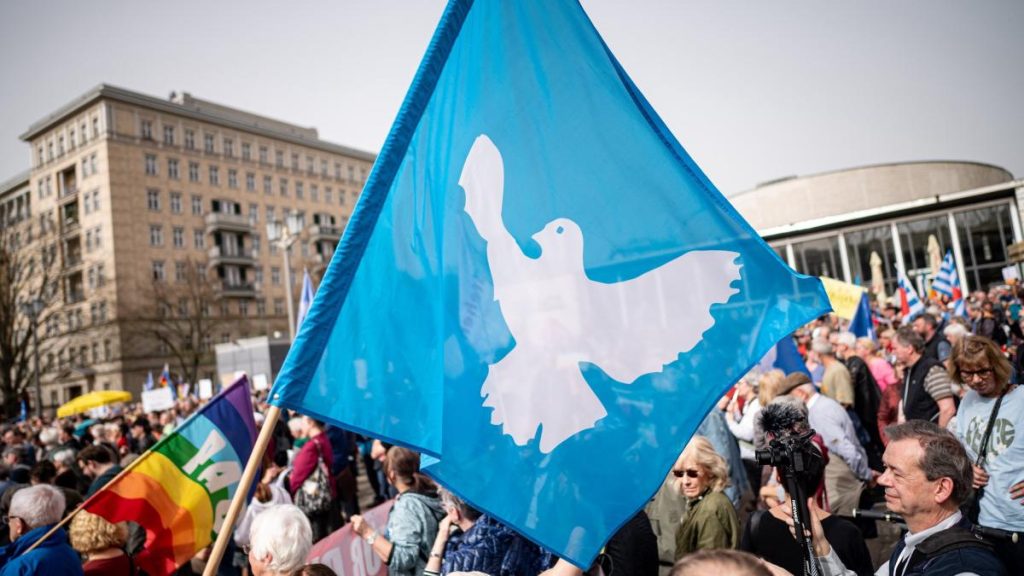Peace activists in Germany have organized traditional Easter marches in more than 70 cities, with organizers rejecting criticism of Germany’s stance towards Russia. On Easter Saturday, around 70 events were planned nationwide, including in Cologne, Duisburg, Bonn, Bremen, Hannover, Leipzig, Stuttgart, and Munich. The events called for peace and disarmament, with participants gathering in various cities such as Cologne and Duisburg. The central themes of this year’s Easter marches are demands for negotiations in the Russia-Ukraine conflict, nuclear disarmament, and criticism of rising military expenditures.
In Cologne, around 300 participants gathered at Roncalliplatz near the Cathedral under the theme “For a civil turning point – end wars, stop arms build-up!” The Easter march Rhein-Ruhr in Duisburg saw around 200 participants according to police estimates. The march will continue with a bike tour from Essen to Bochum on Sunday, ending traditionally in Dortmund on the third day. Additionally, a peace bike demonstration was planned in Münster. Some marches also saw participation from pro-Palestinian activists, including in Leipzig. The demonstrations aim to send a message against war and militarization.
Friedensaktivist Willi van Ooyen, an organizer of the German Easter march movement for over 40 years, defended the activists’ stance in the Ukraine conflict against criticism from politicians. He emphasized the need for dialogue and ceasefire rather than blaming a specific party. Ooyen criticized the government’s focus on military readiness, highlighting a shift from previous policies of détente. He argued that the current atmosphere aims to glorify the military rather than seeking peaceful solutions. The Peace Network’s spokesperson, Kristian Golla, also emphasized the importance of diplomatic approaches in resolving conflicts before the situation in Ukraine worsens further.
The Peace Network and organizers of the Easter marches maintain that their criticism of the government’s approach is not naïve but driven by a desire for peaceful resolutions to conflicts. They argue that diplomatic efforts should be prioritized in the Western response to the Ukraine crisis to prevent further deterioration. The focus on dialogue and negotiation is seen as essential for building trust and avoiding further escalation. The activists stress the importance of maintaining a peaceful and cooperative approach in international relations rather than resorting to aggressive measures.
The Easter marches in Germany serve as a platform for citizens to voice their concerns about the current state of global affairs, particularly in relation to military conflicts and rising arms expenditures. Through these peaceful demonstrations, participants aim to challenge the prevailing narratives on security and militarization, advocating for dialogue, disarmament, and a renewed commitment to peace. The diverse range of participants, including peace activists and pro-Palestinian supporters, reflects a common goal of promoting non-violent solutions to international conflicts and fostering a culture of peace and understanding.


